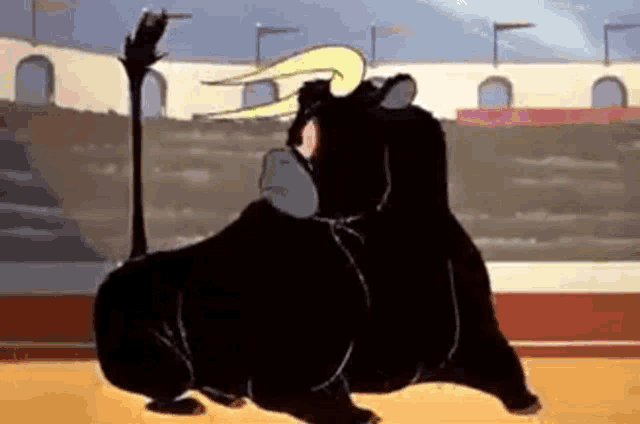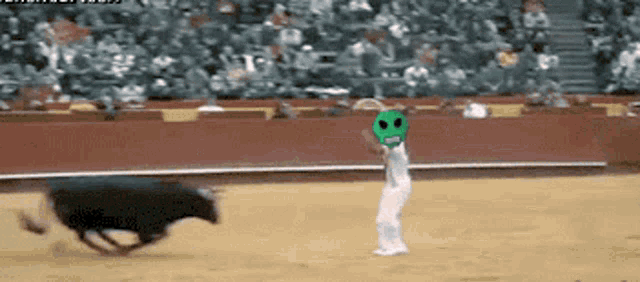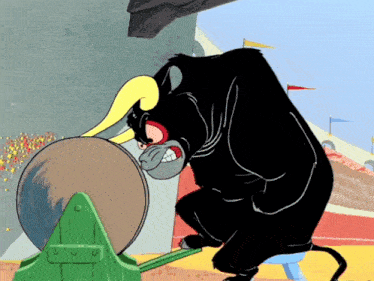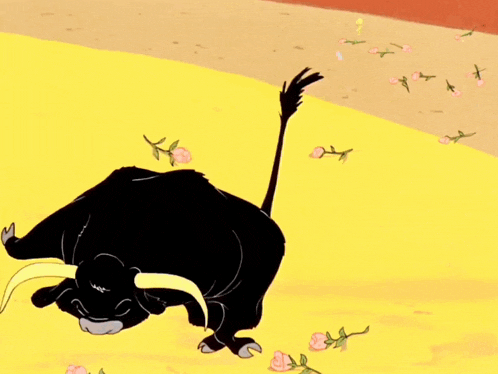
Unsplash

Lunes, 20 de enero, 2025.
Las corralejas en Colombia tienen una historia ligada a las tradiciones culturales y rurales del país, están marcadas por la mezcla de influencias españolas e indígenas que definieron el paisaje social desde la época colonial, por eso, lo considero algo sincrético. Estas celebraciones surgieron como una forma de entretenimiento popular en las comunidades agrícolas, especialmente en las regiones de la Costa Caribe, donde los lazos con la ganadería siempre han sido fuertes.

Tenor
Los orígenes de las corralejas se remontan a las festividades taurinas que los colonizadores españoles trajeron al Nuevo Mundo, sin embargo, en Colombia, este modelo se transformó y adquirió una identidad propia porque a diferencia de las corridas de toros tradicionales, las corralejas se convirtieron en eventos más abiertos y participativos, donde cualquier persona podía entrar al ruedo, interactuar con los animales y ser parte activa del espectáculo.
Para muchos, esta apertura simbolizaba el espíritu colectivo de las personas que vivían en zonas rurales en donde las fiestas no solo eran un espacio de diversión, sino también una expresión de la vida comunitaria. La estructura misma de las corralejas hasta ahora es un reflejo de esta apropiación cultural, por ejemplo, los palcos, hechos con madera y guadua, son construidos por los propios habitantes, lo que convierte al evento en un esfuerzo colectivo, en donde cada persona, desde los carpinteros hasta los músicos, tiene un papel en la realización de la fiesta.
Estas celebraciones también están marcadas por la actividad entre el ser humano y el toro porque mientras que en las corridas de toros europeas el matador busca demostrar su superioridad sobre el animal, en las corralejas el encuentro es más caótico y menos ritualizado, en este contexto, el toro no siempre es sacrificado, y los participantes, conocidos como "voluntarios", enfrentan al animal sin el rigor técnico de los toreros profesionales. Esta interacción, aunque peligrosa, se interpreta como una prueba de valor y destreza.

Tenor
Con el tiempo, las corralejas se consolidaron como parte del tejido cultural de muchas regiones del país, especialmente en Córdoba, Sucre y Bolívar, sin embargo, no están exentas de controversia debido a los riesgos para los participantes y los animales han generado críticas y debates sobre la ética de estas prácticas. Para algunos, representan una tradición arraigada que debe ser preservada, mientras que para otros son un reflejo de una relación problemática con el bienestar animal y la seguridad humana.

Tenor
Aunque se dictaminó una ley nacional en donde quedan terminantemente prohibidas las corridas de toros y esto cobija también a las corralejas, en los pueblos se sigue practicando, las personas no suelen acatar las ordenanzas gubernamentales porque muchas veces creen que van en contra de sus orígenes, principios y folclor.
Nunca he sido partidaria de este tipo de eventos a los encajan en el entretenimiento, no he asistido por más que quieran resaltar parte de la cultura de un pueblo y es justamente por eso, porque creo que algo que trae problemáticas que alteran el bienestar humano o animal no produce entretenimiento, sino todo lo contrario.
A veces pensamos en el entretenimiento como un refugio, una manera de escapar de la rutina o de darle un respiro a la mente después de un día difícil. Es natural querer algo que nos distraiga, que nos haga reír, llorar o simplemente desconectarnos, sin embargo, no todo lo que se presenta como entretenimiento resulta ser tan inocuo o positivo como podría parecer en un principio. Hay capas más profundas que vale la pena explorar, porque el impacto que ciertas formas de entretenimiento tienen en nuestras emociones y en el mundo que habitamos no siempre es evidente.
Tomemos otro ejemplo aparte del de las corralejas, un ejemplo más conectado con la tecnología: el consumo de contenidos que glorifican la violencia, la toxicidad en las relaciones o la superficialidad. ¿Qué pasa cuando pasamos horas expuestos a historias que normalizan comportamientos dañinos o que nos presentan un mundo donde el valor de una persona se mide únicamente por su apariencia, éxito material o capacidad de imponerse sobre otros? Sin darnos cuenta, nuestras emociones pueden empezar a moldearse bajo esos esquemas, la ansiedad por no cumplir con estándares imposibles, la insensibilidad ante el dolor ajeno o la adicción a la constante búsqueda de estímulos efímeros son algunas de las consecuencias que pueden surgir. Lo que parecía un simple entretenimiento termina alimentando una espiral de emociones negativas que afecta no solo a quienes consumen, sino también a quienes los rodean.
Por otro lado, está el impacto ambiental. Pocas veces reflexionamos sobre los recursos que se gastan para mantenernos entretenidos. Desde los enormes estudios de grabación que consumen cantidades desproporcionadas de energía, hasta la acumulación de desechos en la fabricación de dispositivos que nos conectan con el mundo del entretenimiento. Incluso la producción de un solo evento masivo puede generar toneladas de basura y emisiones que contribuyen al deterioro de nuestro planeta y, aunque podría parecer que esto está lejos de nosotros, la verdad es que todo regresa en forma de un clima más extremo, recursos más escasos y un entorno menos habitable en donde casi nunca se gana y casi siempre se pierde ante los oponentes.

Tenor
Esto no significa que debamos renunciar a todas las formas de entretenimiento más bien, se trata de ser conscientes y críticos con lo que consumimos. Elegir historias que nos inspiren, contenidos que nutran nuestras emociones de manera saludable y opciones que respeten el equilibrio del medioambiente puede marcar una gran diferencia. No se trata de vivir bajo una estricta auto imposición, sino de recordar que, como consumidores, nuestras elecciones tienen peso y que siempre hay espacio para priorizar lo que enriquece y edifica tanto a nuestra mente como al mundo en el que vivimos.
Creo que el entretenimiento debería ser un aliado para el bienestar, no una herramienta que desgaste nuestra esencia o el entorno del que todos dependemos. A veces, dar un paso atrás y pensar en lo que elegimos ver, escuchar o experimentar puede ser un pequeño acto de amor propio y hacia el planeta que llamamos hogar, y, aunque no nos ganemos un aplauso de la sociedad, sino el repudio por no seguir tendencias maliciosas, de todas maneras podremos declararnos a nosotros mismos ganadores por no caer en la trampa.

Tenor
Esta fue una publicación de lunes.
Gracias por pasarse a leer un rato, amigas, amigos, amigues de Blurt.
Que tengan un excelente día y que Dios los bendiga grandemente.
Saludines, camaradas blurtinenses!!

Monday, january 20th, 2025.
The corralejas in Colombia have a history linked to the country's cultural and rural traditions. They are marked by the mixture of Spanish and indigenous influences that defined the social landscape since colonial times, which is why I consider them to be something syncretic. These celebrations emerged as a form of popular entertainment in agricultural communities, especially in the regions of the Caribbean Coast, where ties to livestock have always been strong.

Tenor
The origins of the corralejas date back to the bullfighting festivities that the Spanish colonizers brought to the New World. However, in Colombia, this model was transformed and acquired its own identity because, unlike traditional bullfights, the corralejas became more open and participatory events, where anyone could enter the ring, interact with the animals and be an active part of the show.
For many, this openness symbolized the collective spirit of people who lived in rural areas where the festivals were not only a space for fun, but also an expression of community life. The very structure of the corralejas to this day is a reflection of this cultural appropriation. For example, the boxes, made of wood and guadua, are built by the inhabitants themselves, which turns the event into a collective effort, where each person, from carpenters to musicians, has a role in the realization of the festival.
These celebrations are also marked by the activity between man and bull because while in European bullfights the matador seeks to demonstrate his superiority over the animal, in the corralejas the encounter is more chaotic and less ritualized. In this context, the bull is not always sacrificed, and the participants, known as "volunteers", face the animal without the technical rigor of professional bullfighters. This interaction, although dangerous, is interpreted as a test of courage and skill.

Tenor
Over time, corralejas have become part of the cultural fabric of many regions of the country, especially in Córdoba, Sucre and Bolívar. However, they are not exempt from controversy because the risks to participants and animals have generated criticism and debates about the ethics of these practices. For some, they represent a deep-rooted tradition that must be preserved, while for others they are a reflection of a problematic relationship with animal welfare and human safety.

Tenor
Although a national law was passed in which bullfights are strictly prohibited and this also covers the corralejas, it is still practiced in the towns. People do not usually obey government ordinances because they often believe that they go against their origins, principles and folklore.
I have never been a fan of these types of events that fit into entertainment, I have not attended them even if they want to highlight part of the culture of a people and it is precisely for that reason, because I believe that something that brings problems that alter human or animal well-being does not produce entertainment, but quite the opposite.
Sometimes we think of entertainment as a refuge, a way to escape from routine or to give the mind a break after a difficult day. It is natural to want something that distracts us, that makes us laugh, cry or simply disconnect, however, not everything that is presented as entertainment turns out to be as harmless or positive as it might seem at first. There are deeper layers that are worth exploring, because the impact that certain forms of entertainment have on our emotions and on the world we inhabit is not always evident.
Let's take another example apart from the corralejas, an example more connected to technology: the consumption of content that glorifies violence, toxicity in relationships or superficiality. What happens when we spend hours exposed to stories that normalize harmful behaviors or that present us with a world where a person's value is measured solely by their appearance, material success, or ability to dominate others? Without realizing it, our emotions can begin to be shaped by these patterns; anxiety about not meeting impossible standards, insensitivity to the pain of others, or addiction to the constant search for ephemeral stimuli are some of the consequences that can arise. What seemed like simple entertainment ends up feeding a spiral of negative emotions that affects not only those who consume it, but also those around them.
On the other hand, there is the environmental impact. We rarely reflect on the resources that are spent to keep us entertained. From the enormous recording studios that consume disproportionate amounts of energy, to the accumulation of waste in the manufacture of devices that connect us to the world of entertainment. Even the production of a single massive event can generate tons of waste and emissions that contribute to the deterioration of our planet, and while it may seem like this is far away from us, the truth is that it all comes back to us in the form of more extreme weather, scarcer resources, and a less habitable environment where you almost never win and almost always lose to your opponents.

Tenor
This doesn't mean we should give up all forms of entertainment, rather, it's about being conscious and critical of what we consume. Choosing stories that inspire us, content that nourishes our emotions in a healthy way, and options that respect the balance of the environment can make a big difference. It's not about living under a strict self-imposition, but rather remembering that, as consumers, our choices have weight and that there is always room to prioritize what enriches and edifies both our minds and the world we live in.
I believe that entertainment should be an ally for well-being, not a tool that wears down our essence or the environment we all depend on. Sometimes, taking a step back and thinking about what we choose to watch, listen to, or experience can be a small act of self-love and love for the planet we call home, and, even if we don't earn applause from society, but rather repudiation for not following malicious trends, we can still declare ourselves winners for not falling into the trap.

Tenor
This was a monday post.
Thanks for stopping by to read for a while, Blurt friends.
Have a great day and may God bless you greatly.
Regards, comrades blurtarians!!
Translation: Deepl.com
